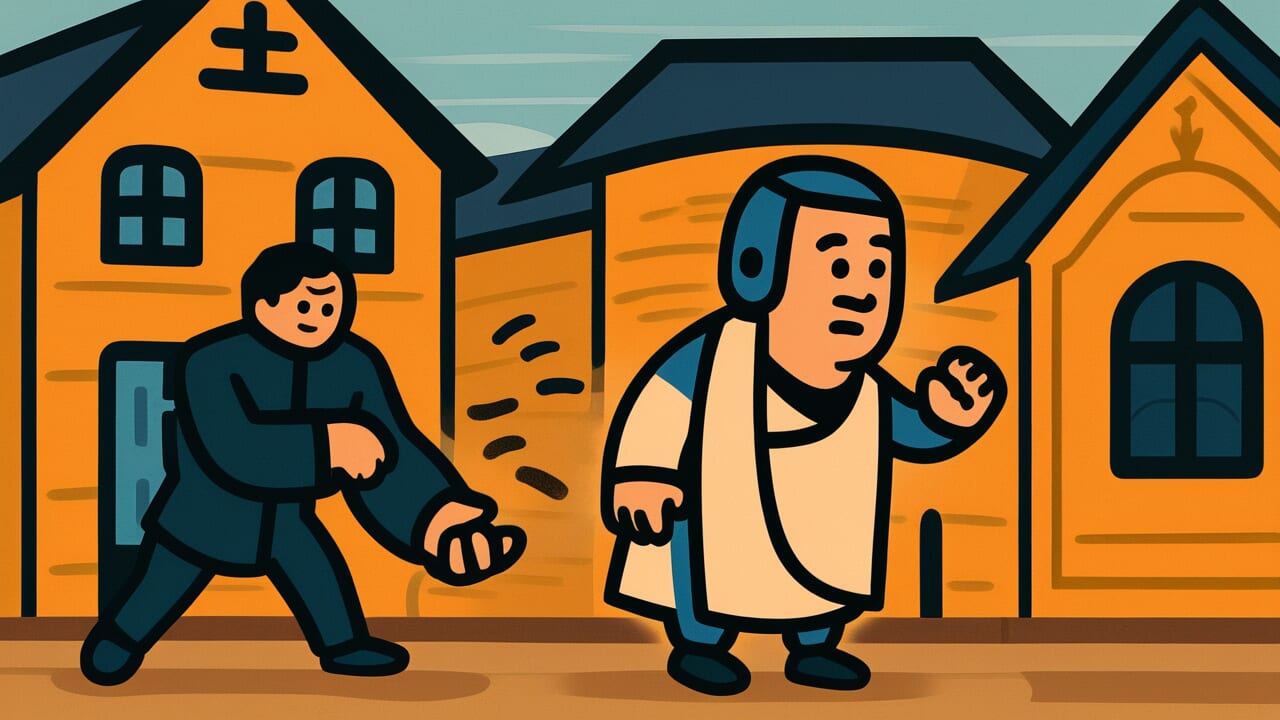How to Read “The house may be weak, but the master should be strong”
いえはよわかれぬしはつよかれ
Meaning of “The house may be weak, but the master should be strong”
This proverb teaches that even if a house is poorly built, the head of the household should be strong and resilient.
In other words, the building itself can be modest, but the physical and mental strength of the person supporting the family matters most.
This shows a value system that prioritizes substance over appearance. It serves as a reminder especially for those who bear responsibility as the pillar of their family.
Even if someone lives in a grand house, the family will feel anxious if the head is unreliable. But even in a modest home, the family can live peacefully if the head is dependable.
Today, we understand this as a universal lesson. Inner strength and the ability to be a spiritual pillar matter more than material wealth or outward success.
This proverb speaks to the value of invisible inner qualities like leadership and the sense of responsibility to protect one’s family.
Origin and Etymology
The exact literary origin of this proverb is unclear. However, its structure suggests it emerged from the warrior class or common people’s life philosophy in Japan.
The paired expression “the house may be weak” and “the master should be strong” reflects traditional Japanese linguistic patterns.
The classical auxiliary verb “kare” expresses a strong wish or command, meaning “should be this way” or “I hope it will be this way.”
The background of this saying relates to Japan’s living environment and social structure. Traditional Japanese houses were wooden and not particularly sturdy against earthquakes or fires.
With limited resources, people developed a value system. The quality of the family head mattered more than building an impressive house.
In the samurai world, the spirit of “simplicity and fortitude” was valued. Inner strength was prized over outward splendor.
Among common people too, there was a practical understanding. Having a solid family pillar brought more happiness than building a fancy house for show.
This life wisdom likely crystallized into this proverb over time.
Usage Examples
- We live in an old rental apartment, but “the house may be weak, but the master should be strong.” Dad works hard for the family, so I’m not worried at all
- Even without a fancy office, “the house may be weak, but the master should be strong.” If the manager is solid, the company will grow
Universal Wisdom
This proverb has been passed down for generations because it perfectly captures essential priorities in human society.
We tend to be captivated by visible things. Grand houses, beautiful exteriors, luxurious decorations. But what truly protects people and brings happiness is not the outer shell, but the strength of the people inside.
Looking back at history, even the grandest castles and mansions fell if their masters were weak. Conversely, even in modest dwellings, people overcame any hardship when their bonds were strong.
This truth applies not just to families, but to organizations and nations as well.
Humans tend to hide inner anxiety by fixing their outward appearance. But our ancestors saw through this emptiness.
What truly matters is invisible strength: the courage to face difficulties, the responsibility to protect family, and personal integrity.
This proverb conveys a universal message. Before pursuing material wealth, first strengthen your inner self.
Decorating the outside can wait. First, make your core as a person strong. Then, no matter what environment you’re in, you can protect and guide those around you.
When AI Hears This
Modern resilience engineering measures system strength not by “resistance to breaking” but by “ability to learn from stress.”
In aviation, for example, data shows that organizations experiencing small troubles are better at preventing major accidents. In other words, “weak environments” cultivate “strong adaptability.”
The “weak house” in this proverb actually represents an optimal stress level. According to Nassim Taleb’s antifragile theory, living things and humans grow stronger under moderate load.
Just as muscles thicken by recovering from microscopic damage, human judgment and creativity are trained by small daily difficulties. The key point is “weakness within a non-fatal range.”
Interestingly, this proverb doesn’t say “make the house strong.” A perfectly arranged environment actually makes people fragile.
Just as the immune system weakens in overly clean environments, problem-solving abilities don’t develop when everything is provided. Systems thinking calls this “the optimization trap.”
In modern organizational theory, “slack theory” is gaining attention. It deliberately avoids cutting too much margin.
A little inconvenience and constraint simultaneously generate creativity and resilience.
Lessons for Today
What this proverb teaches you today is the importance of strengthening your own foundation.
We spend much time and energy arranging our surroundings. But what we really need is to develop ourselves so we can perform in any environment.
Before getting absorbed in staging a good-looking life on social media or decorating yourself with brand items, ask yourself this.
When facing difficulties, can you stand up to them? Can you protect those important to you? Can you stick to your beliefs?
This doesn’t mean you should neglect appearances. It’s just a matter of priorities.
First train your inner self and become strong as a person. Then, if you have余裕, you can work on the outside. Not getting this order wrong is what matters.
If you’re a student, prioritize your motivation to learn over your learning environment. If you’re working, prioritize your abilities over workplace conditions.
If you’re a parent, prioritize your way of living over what you give your children. Start by strengthening yourself as the master.
If you can do that, you’ll become someone others can rely on, no matter the situation.



Comments